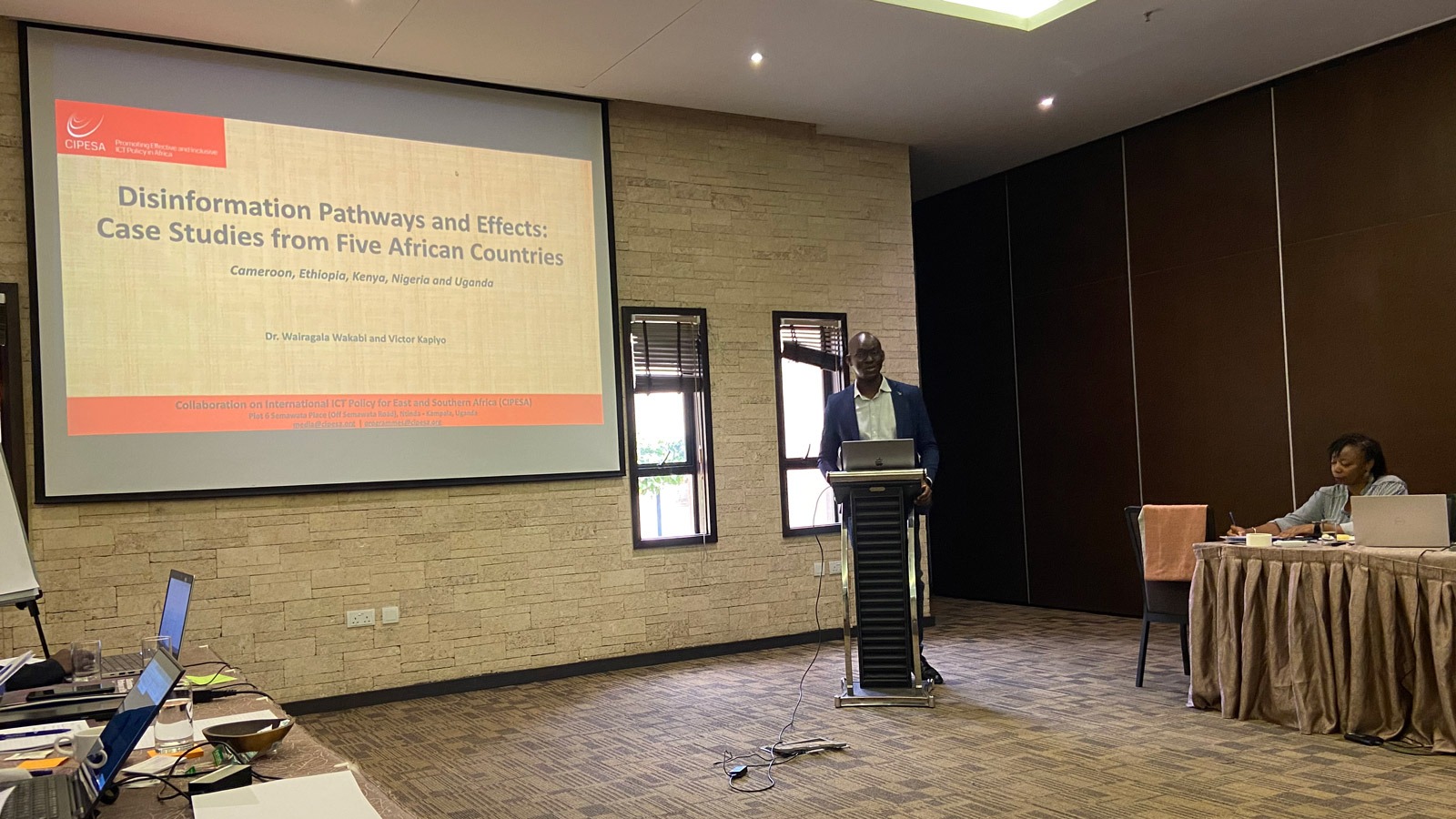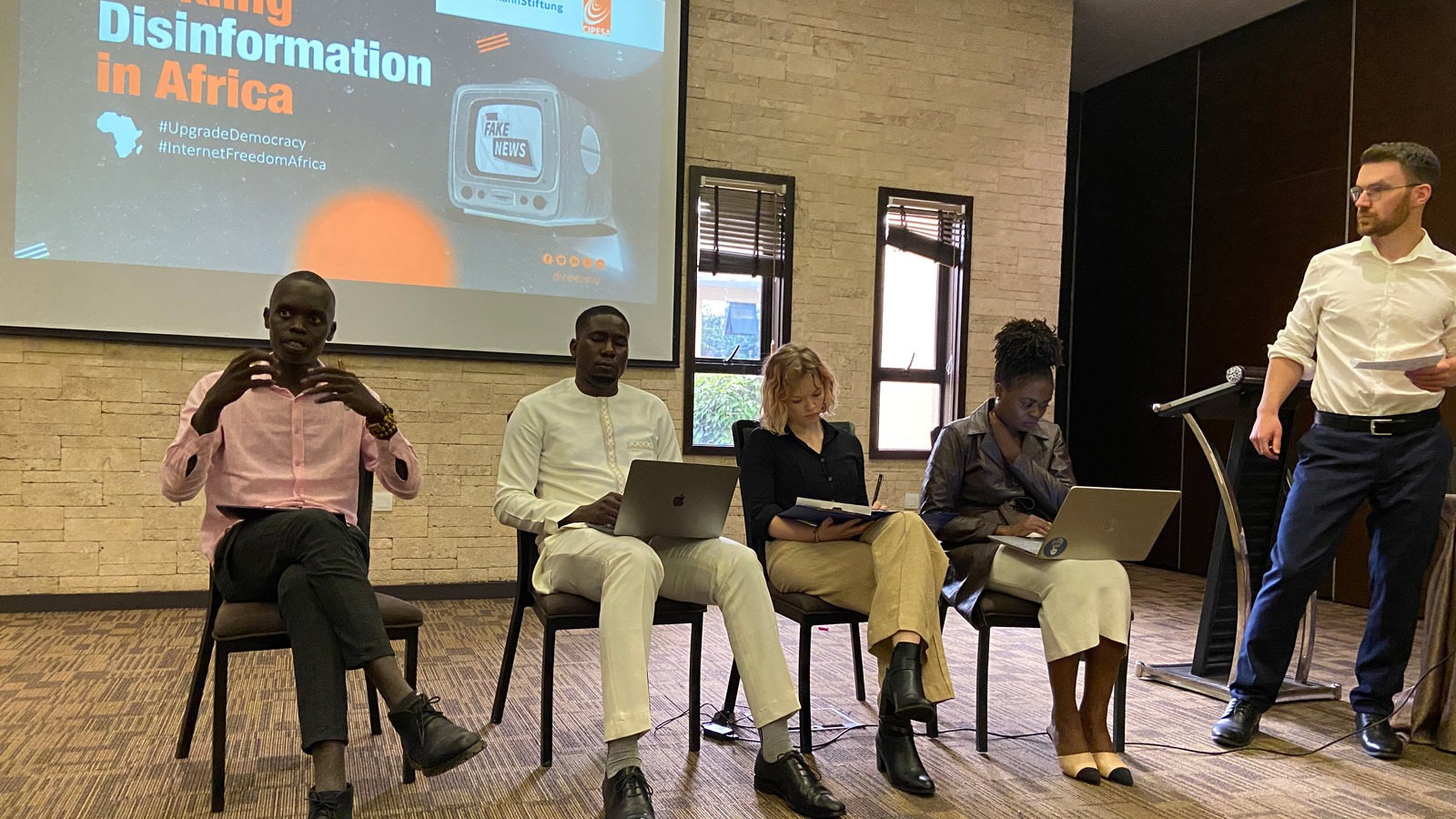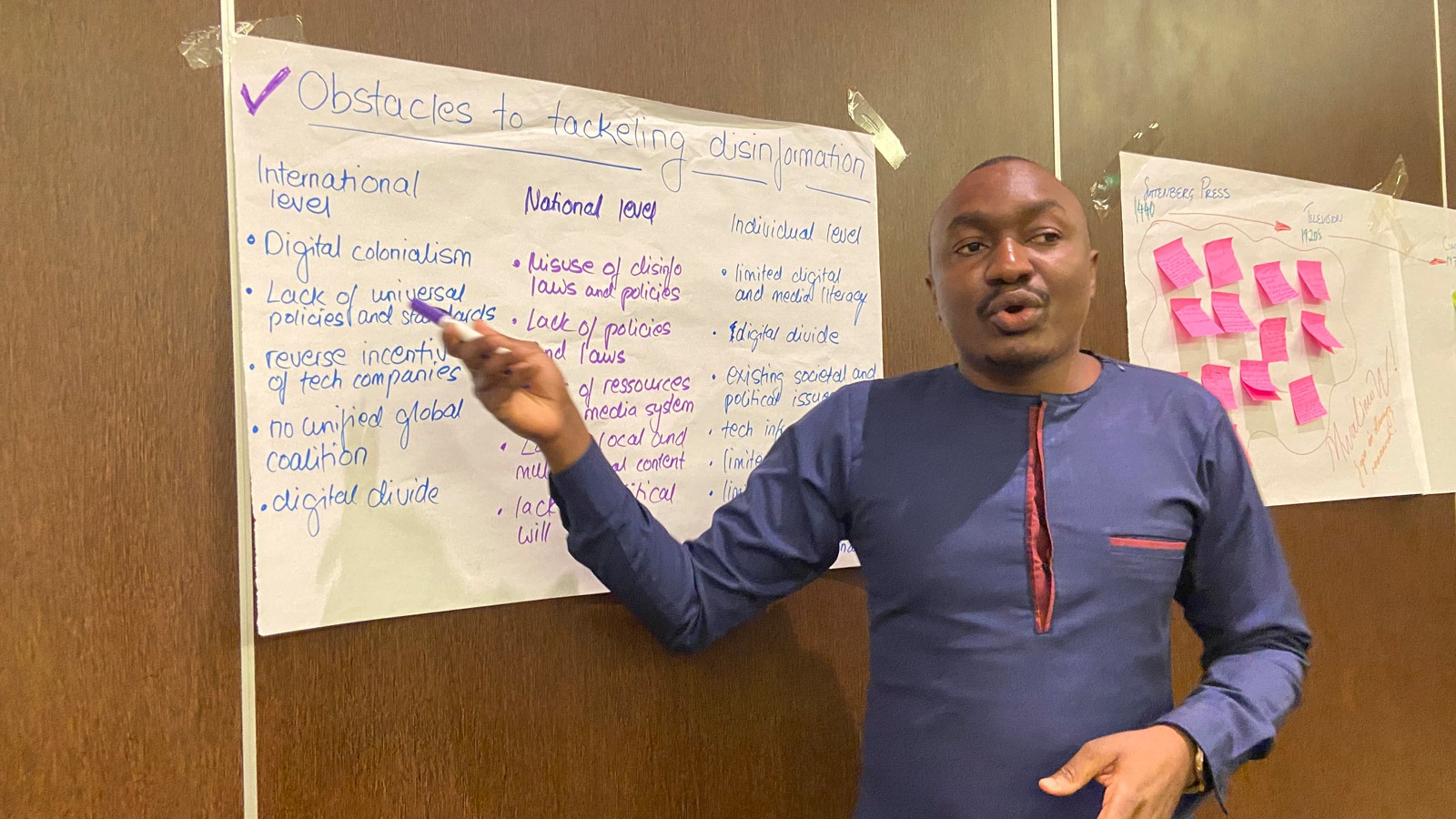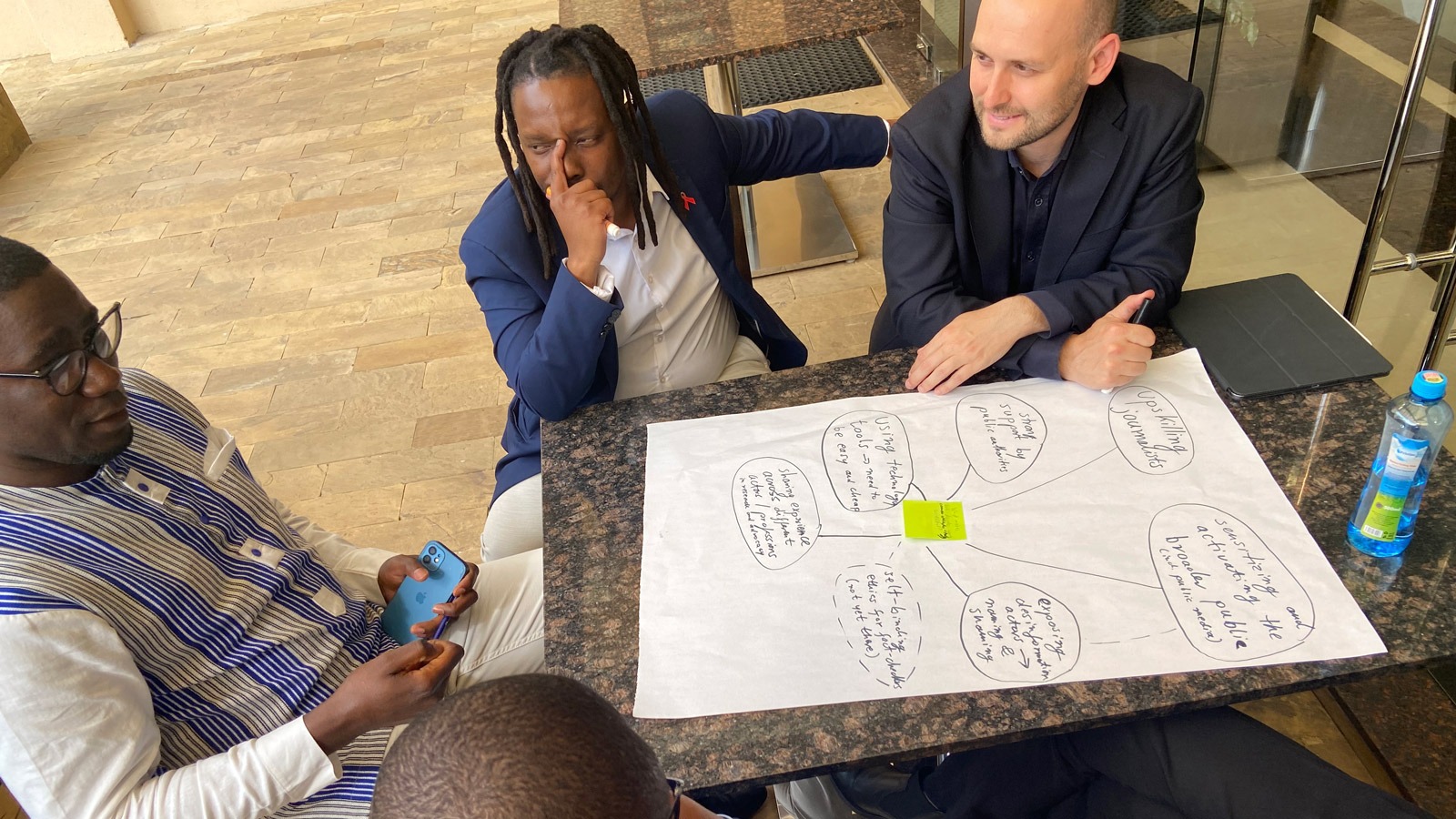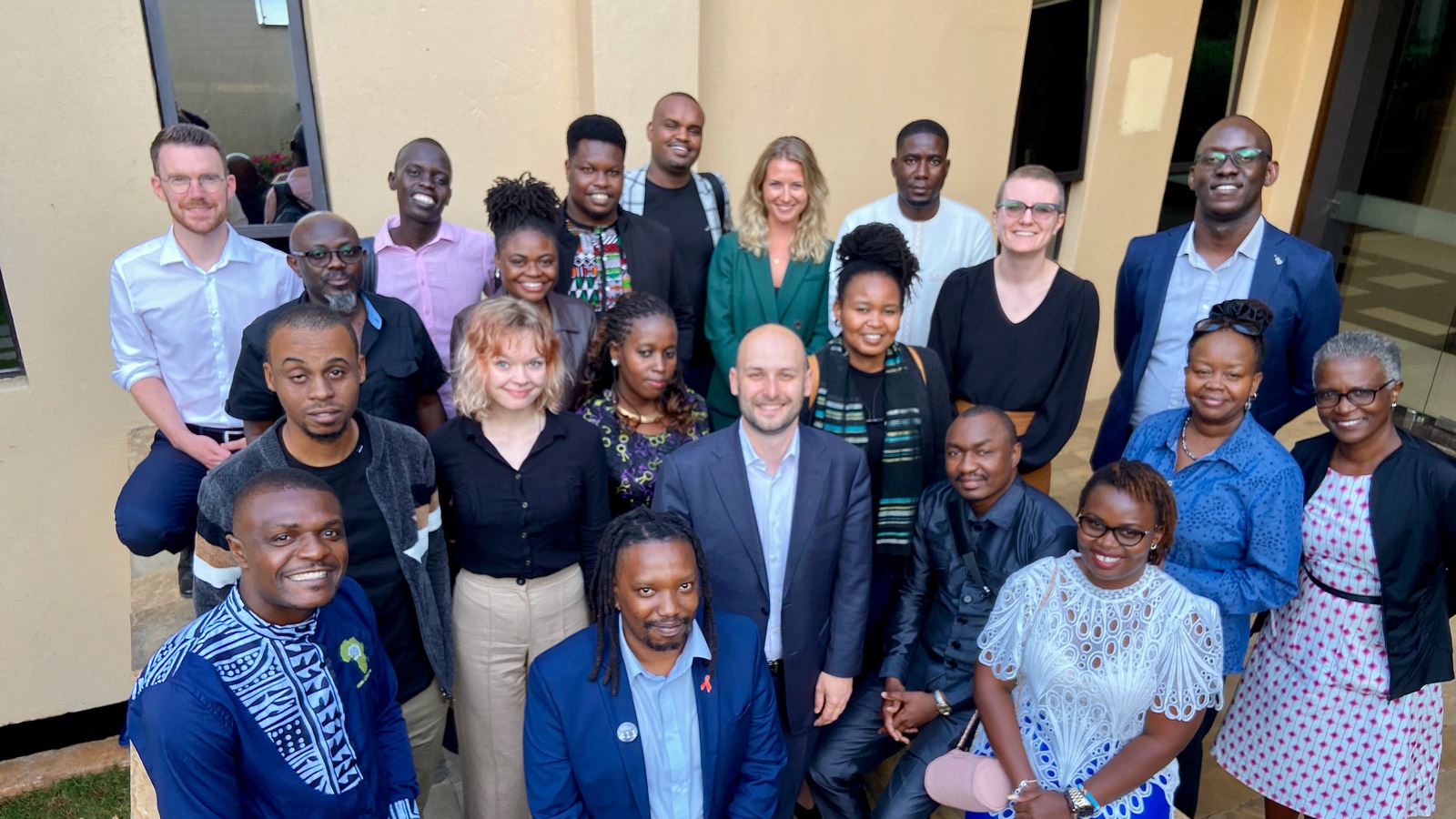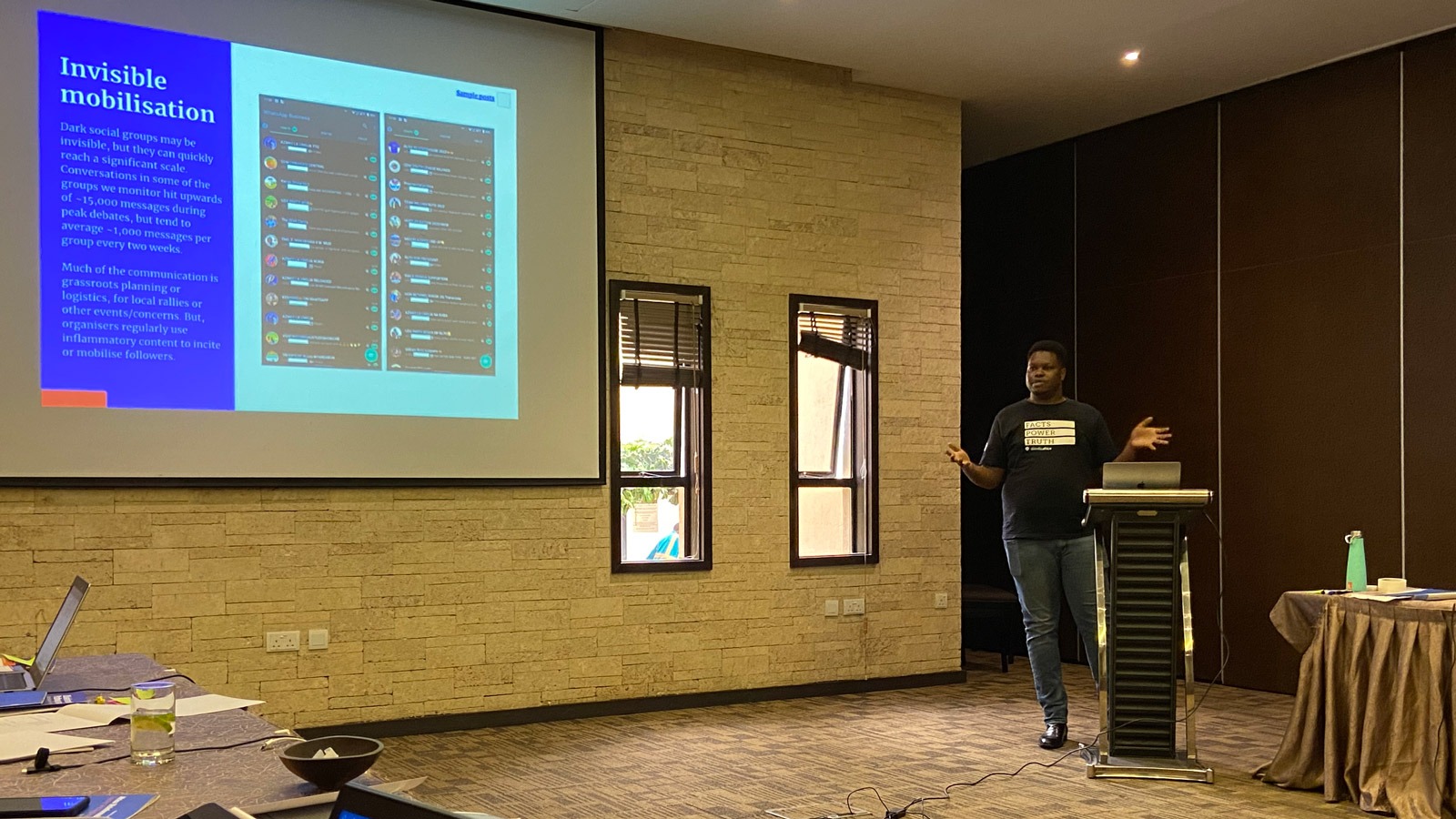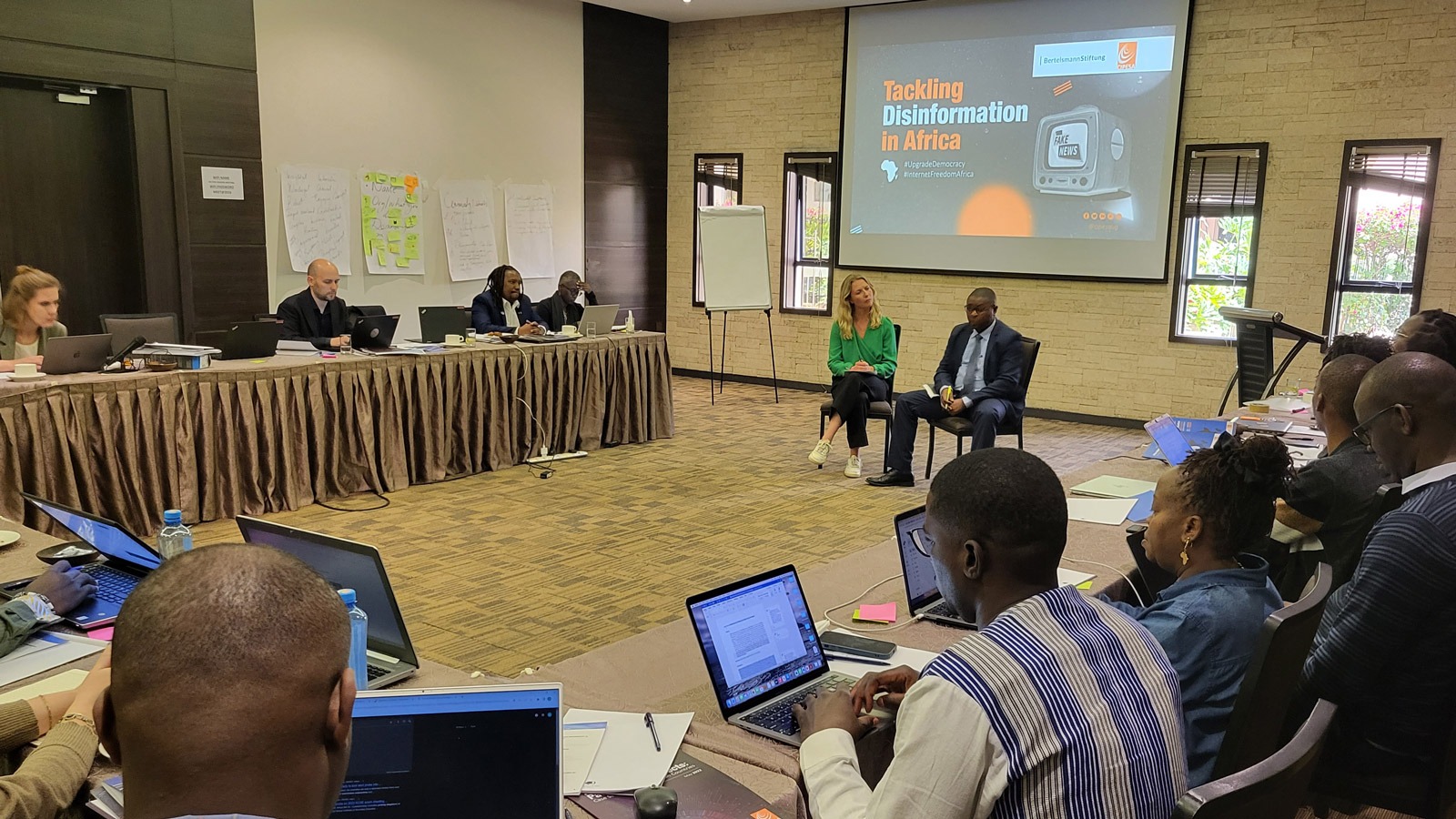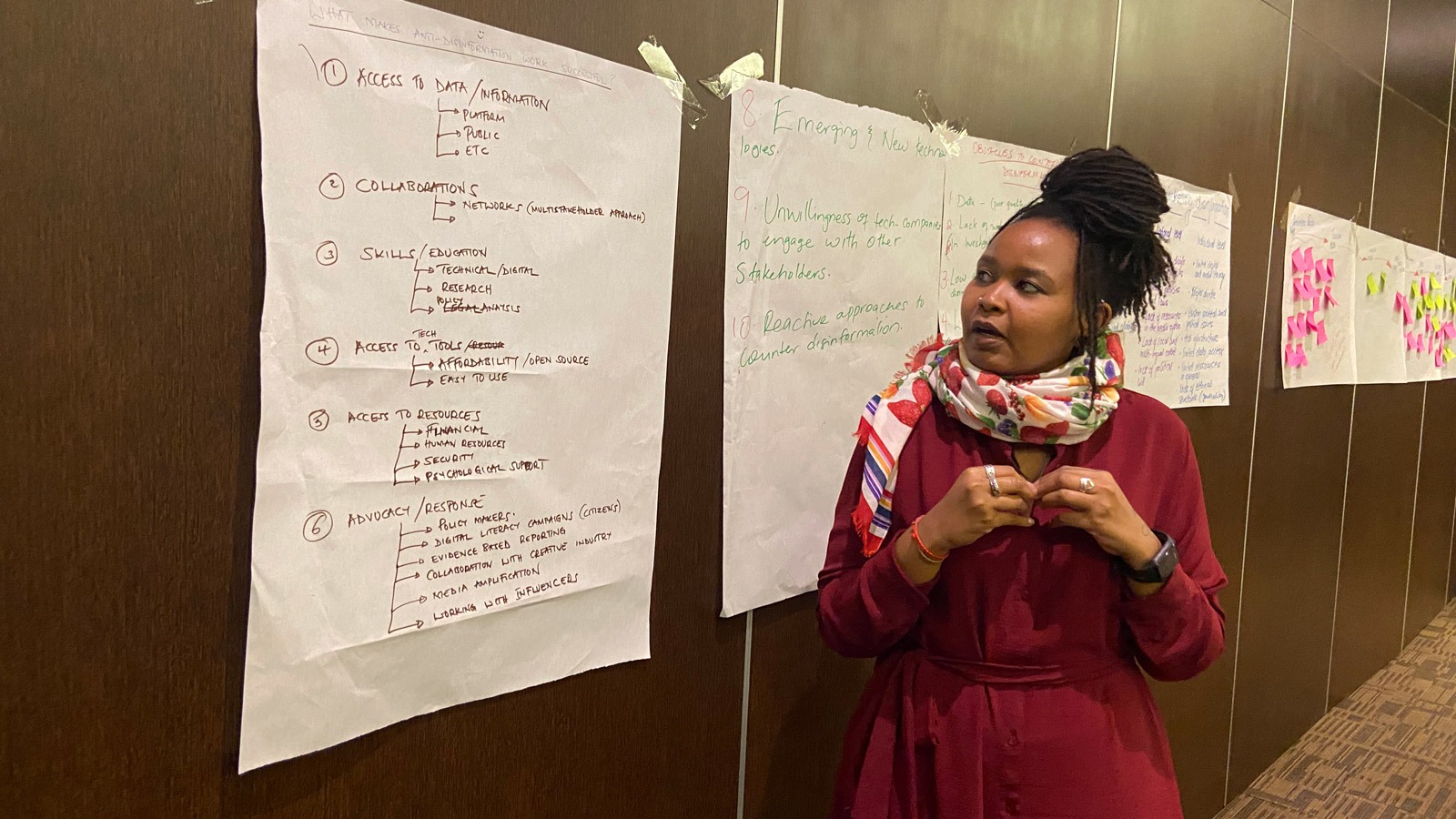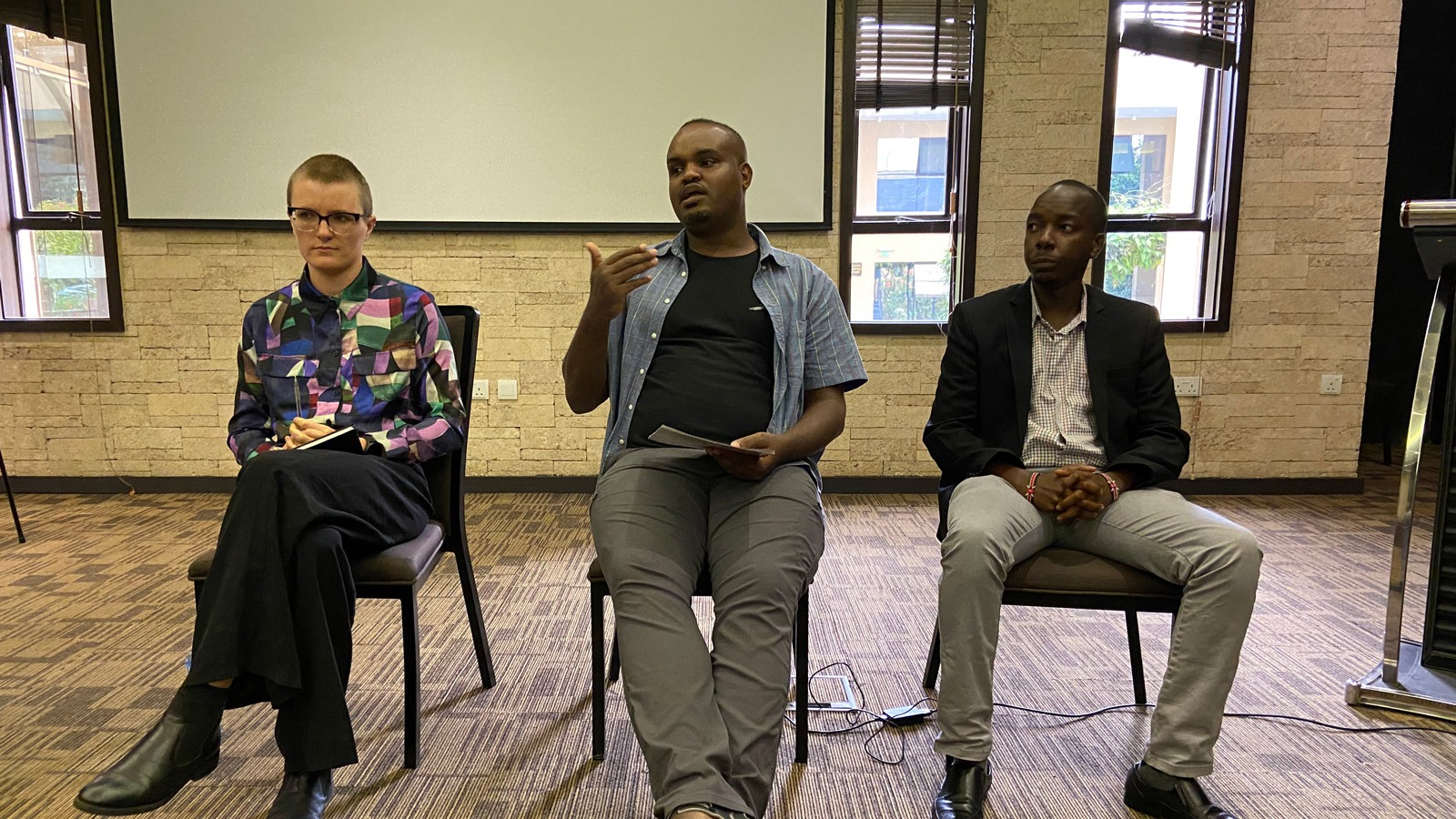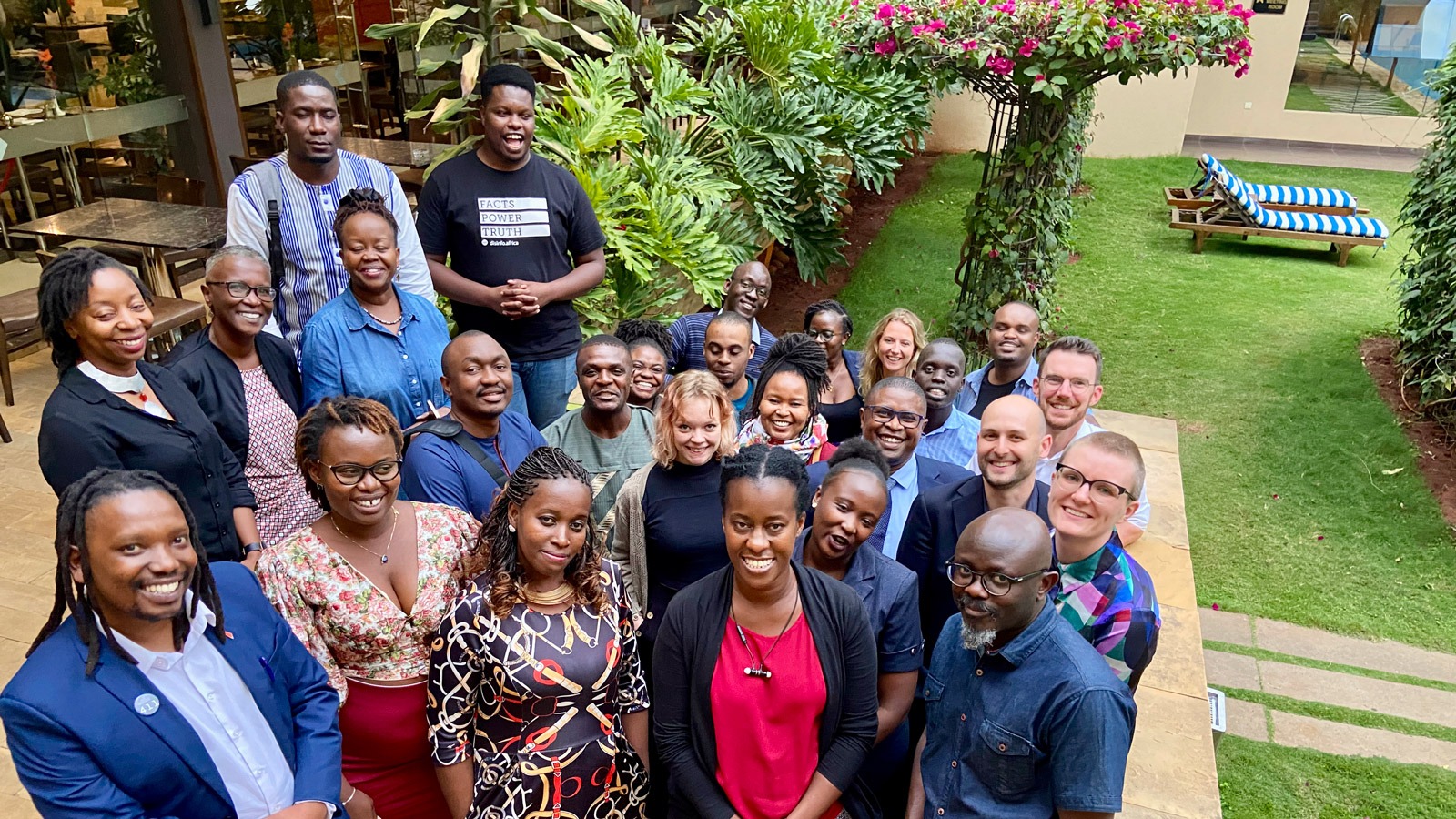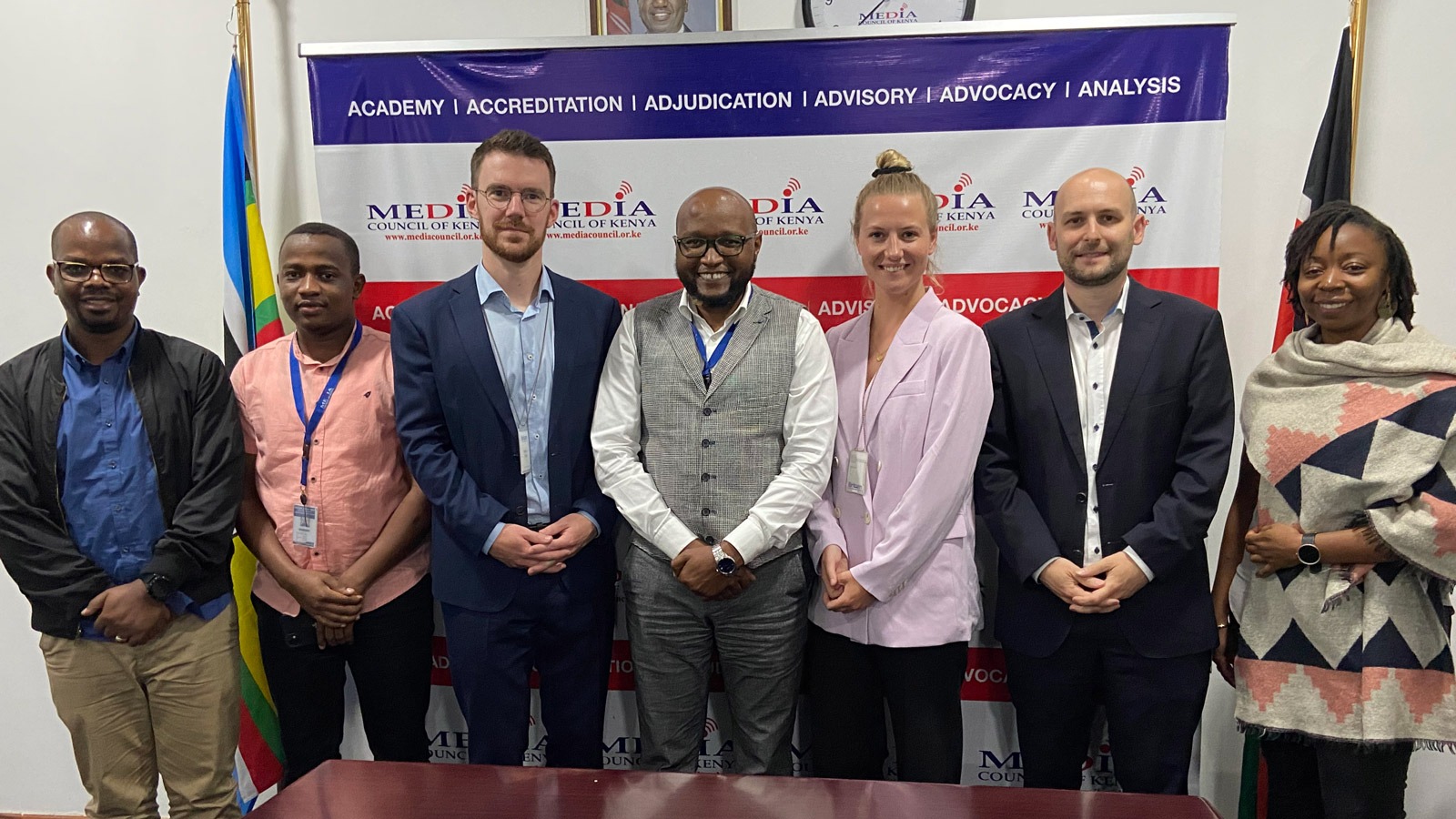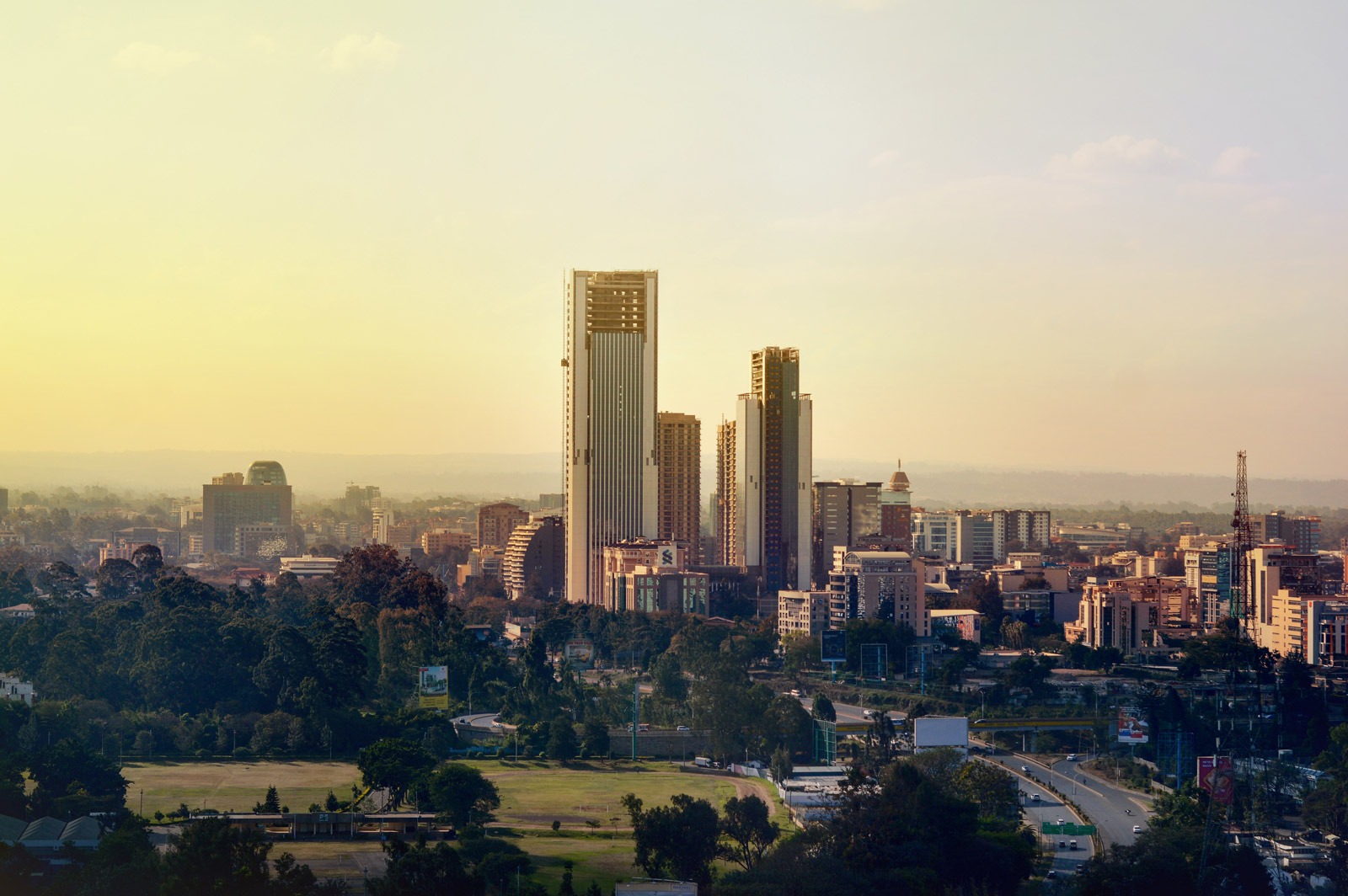
Research engagement #1 to Nairobi, Kenya
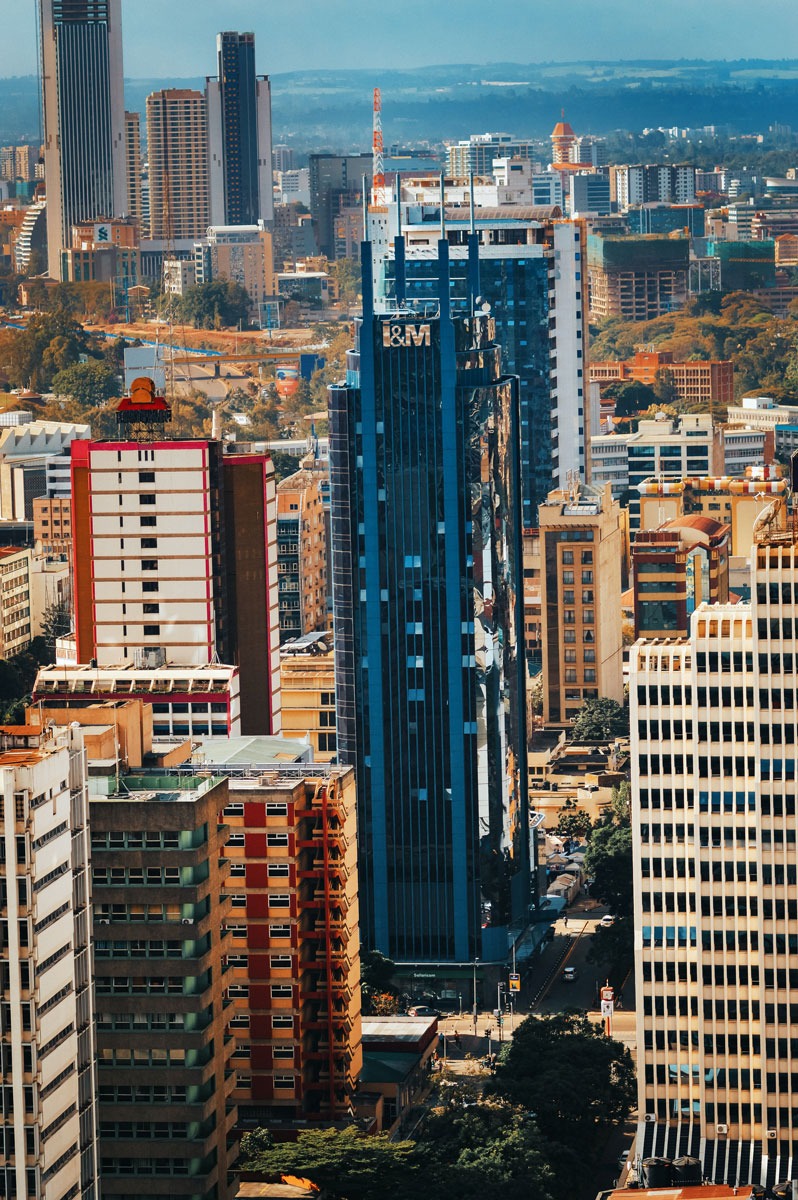
Our international good-practice research is supported and enriched by regional research engagements, consisting of workshops and bilateral discussions with decision-makers, experts, and relevant stakeholders, who we are bringing together in one comparatively central location in each region. The goal of these research trips is to create a space for exchange amongst experts and mutual learning of each other’s contexts to jointly explore the landscape of counter-disinformation initiatives, pro-democracy mobilisations efforts, and highlight particularly promising examples and good practices. In addition, networking with and among the respective actors aims to foster strong collaborations, alliances, and knowledge transfer, including assessing ideas for their potential to successfully strengthen counter-disinformation efforts in Europe and Germany.
Focus: Role of the media, fact-checking and elections
Our first research trip took place from June 12th to June 16th, 2023, in Nairobi, Kenya. Together with our regional partner, the Collaboration on International ICT Policy for East and Southern Africa (CIPESA), we conducted a two-day conference with 25 participants from over 15 different African countries. It was followed by two days of bilateral discussions with government representatives, representatives of civil society, such as Amnesty International and journalists. Below you will find a report and summary of our insights, impressions, and findings.
